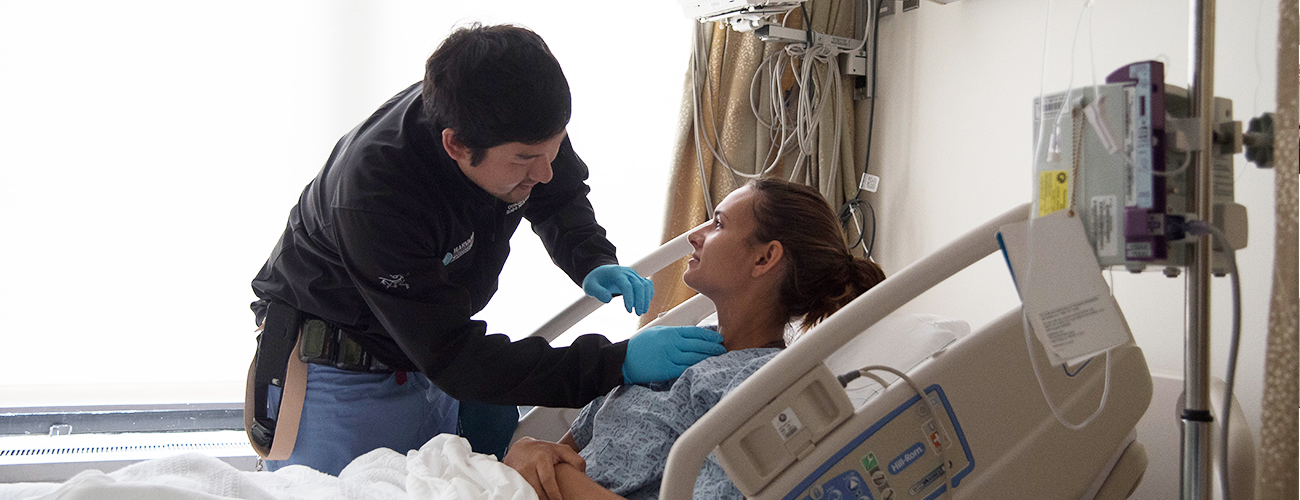Gliklich Healthcare Innovation Scholar Program
The Gliklich Healthcare Innovation Scholars Program launched in 2013 with the goal of providing a transformative opportunity for young physicians to pursue novel and disruptive ideas and projects that might otherwise be difficult to undertake through traditional funding mechanisms. The program seeks individuals looking for a mentored experience in innovation and the opportunity to make an impact on healthcare treatments, delivery, outcomes, or education through a focused project, protected time, and the rich, collaborative environment of Mass. Eye and Ear/Harvard Medical School, nearby institutions, and other resources.
The program draws on the unparalleled resources of the Harvard community: its faculty, networks, and a broad range of potential collaborators and local entrepreneurs. The program is seeking motivated individuals with good ideas—ideas that will help shape their own unique experience at a premier, specialized teaching affiliate of Harvard Medical School and impact healthcare broadly. Projects should be relevant to at least one of the departments at Mass. Eye and Ear, with key milestones that can be achieved during the period of funding.
Innovation Scholars may be selected for either a full-time or a part-time commitment. Salary support will be commensurate with their post-graduate level and time commitment, and funding will be provided for miscellaneous expenses and travel.
Highlights
- Program Director: Richard E. Gliklich, MD
- Start date: Flexible between July 1 and October 1
- Program length: One year
- Number of positions: One
Objectives
Innovation Scholars should propose a realistic, one-year (full-time or part-time) scope of work targeted at laying the groundwork for an innovation in healthcare products and treatments, delivery, outcomes, or education. Entrepreneurial ideas are encouraged. Relevant but limited coursework may be proposed. As part of the program, Scholars will be invited to attend meetings where other innovative or entrepreneurial ideas are being presented.
Scholars will be expected to:- Meet regularly with their mentor to review project progress and milestones
- Plan and deliver a seminar on their project
- Write a final report or submit a manuscript to a peer-reviewed journal describing the project and results
Salary and Benefits
Scholars will receive salary support commensurate with their post-graduate level. Additional funds are available for miscellaneous expenses related to the project and for limited travel. For projects that require external funding, such funding needs may be pursued during the period of the scholarship.
Overview of Application and Review Process:
A five-page complete application will be due by January 20, 2023. Review committees will score the applications on a rolling basis and the top scoring finalists will undergo an interview by the Gliklich Innovation Scholars Review Committee, either in person or remotely. The ultimate selection of scholars will be based on proposal and interview scores, and selection criteria. The committee retains the right to not fund any project in any given year if no suitable idea has been proposed.
To apply, please email the following documents to emily_shipp@meei.harvard.edu
- Completed application
- Resume
- Short proposal (approximately 5 pages in length), on how you would like to utilize the fellowship time period and support
Eligibility
Any individual who has completed at least three years’ work towards a medical degree from a U.S. medical school. This includes 4th year medical students, residents, fellows, and young faculty. Applicants should be U.S. citizens or permanent residents.These scholarships are intended to support individuals who wish to design, implement, and produce innovations in healthcare products, delivery, education, or other transformative areas, including novel research.
Criteria for evaluating applicants
- Significance: How significant is the problem that is being addressed? How will it improve human health or patient experience of health and illness?
- Innovation: How innovative is the idea?
- Educational value: How valuable will this experience be for the Scholar?
- Feasibility of implementation: How likely is this proposal to be able to be implemented? Is there a clear outlined plan for implementation? How organized is the proposal write-up? Have potential key collaborators been identified?
- Sustainability: How sustainable is the innovation after the funding period?
- Collaboration across academic disciplines: Does the proposal include collaboration across academic disciplines such as business, engineering, or education?
At the end of the first year, scholars interested in continuing to participate in the program for an additional year will be evaluated by the scholarship committee based on their project and the milestones achieved.
Past Scholars
Hajirah N. Saeed, MD
Regan W. Bergmark, MD
Nicole Black, PhD


